Are you feeling uncertain about your university admission outcome? If so, you're not aloneâmany prospective students face this challenging situation. Crafting a thoughtful admission appeal letter could be your ticket to securing a spot in your desired program. Join us as we delve into the essential elements of an effective appeal letter and discover how to present your case persuasively.

Clear and Concise Introduction
A university admission appeal letter serves to request a reevaluation of an admission decision made by academic institutions, such as prestigious universities. The introduction should concisely outline the purpose of the letter, including the applicant's name and the specific program or major (e.g., Bachelor of Science in Biology) for which the admission decision was received. Highlighting relevant application components, such as GPA (Grade Point Average), standardized test scores (e.g., SAT/ACT), or extracurricular activities (e.g., leadership roles in clubs), can also provide context for the appeal. The tone should remain respectful and professional, demonstrating a genuine desire for reconsideration and willingness to provide additional information if necessary.
Detailed Explanation of Circumstances
Circumstances surrounding university admission appeals often include personal challenges that impact academic performance, such as health issues, family crises, or economic hardships. For example, a student may face significant emotional distress due to a family member's severe illness, leading to a decline in grades during critical assessment periods. Additionally, unexpected life events, like relocation due to a parent's job loss, can disrupt educational continuity and affect overall performance. Financial difficulties may also play a crucial role, for instance, when a sudden loss of household income necessitates part-time work, consequently reducing study time and focus. These situations significantly shape a student's academic journey, warranting consideration during the admission appeal process.
Evidence and Documentation
In the context of university admissions, an appeal for reconsideration often requires clear evidence and well-organized documentation. An appeal can stem from various reasons, such as discrepancies in application status, additional achievements post-application, or miscalculations in academic performance. Essential components of documentation might include official transcripts (reflecting recent grades), standardized test scores (like SAT or ACT, if applicable), recommendation letters from educators (indicating student potential), and personal statements explaining mitigating circumstances (such as health issues or personal challenges). Providing a comprehensive overview of achievements, awards, and extracurricular involvement strengthens the appeal, showcasing the candidate's dedication and resilience. Timeliness matters; submitting the appeal within designated deadlines, often set by the admissions office (which can vary by institution), is crucial for consideration.
Expressed Passion and Commitment
Many successful applicants, such as those from the University of California system, demonstrate their dedication through extracurricular activities, meaningful volunteer work, and academic achievements. For instance, engaging in community service projects or leading student organizations reflects a genuine commitment to personal growth and education. Involvement in research opportunities at institutions like MIT or participating in summer programs around STEM fields indicates a strong interest and passion for learning. Moreover, presenting personal experiences that showcase resilience and determination can significantly enhance an appeal, illustrating the candidate's readiness to thrive in a rigorous academic environment. Academic accolades, such as maintaining a GPA above 3.5 or excelling in Advanced Placement courses, further support the case for admission.
Polite and Respectful Tone
The university admission appeal process allows applicants an opportunity to present new information or clarify extenuating circumstances impacting their original application. Appeal letters should include a respectful acknowledgment of the admissions committee's decision, a clear presentation of new evidence or changes in circumstances, and a heartfelt expression of continued interest in attending the institution. Specific references to relevant admissions criteria and personal anecdotes highlighting the applicant's achievements or challenges can strengthen the appeal. Maintaining a polite and professional tone throughout the letter is essential for conveying respect for the committee's work and fostering a positive impression.
Letter Template For University Admission Appeal Samples
Letter template of university admission appeal for academic reconsideration.
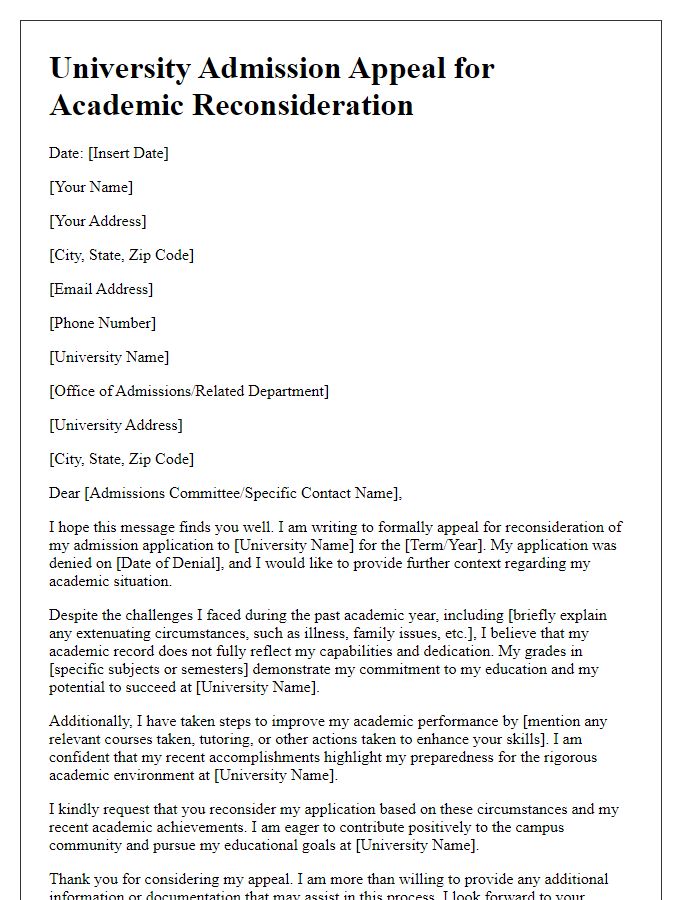
Letter template of university admission appeal due to personal circumstances.
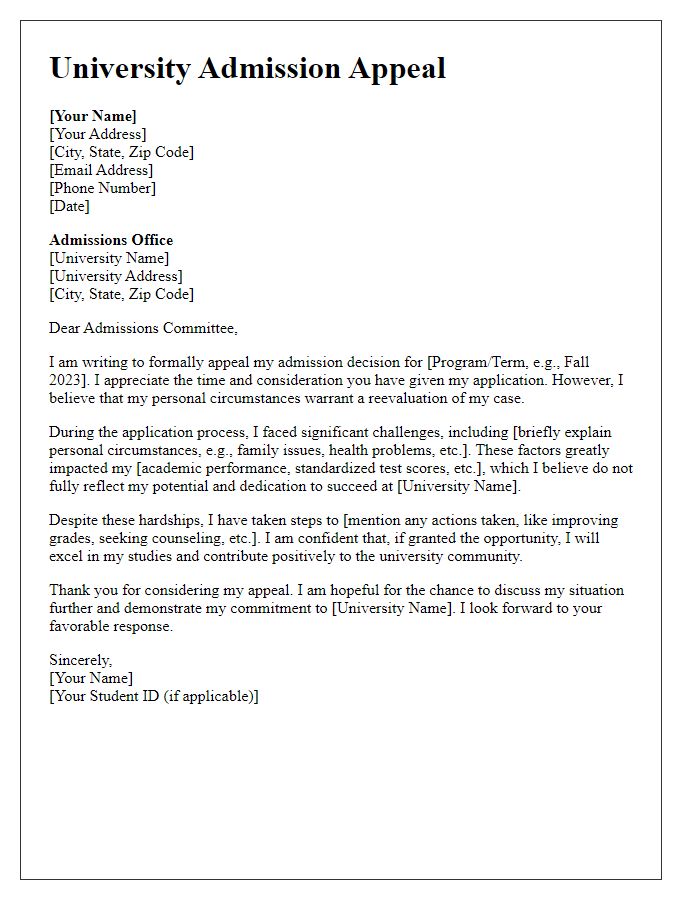
Letter template of university admission appeal for enhanced qualifications.
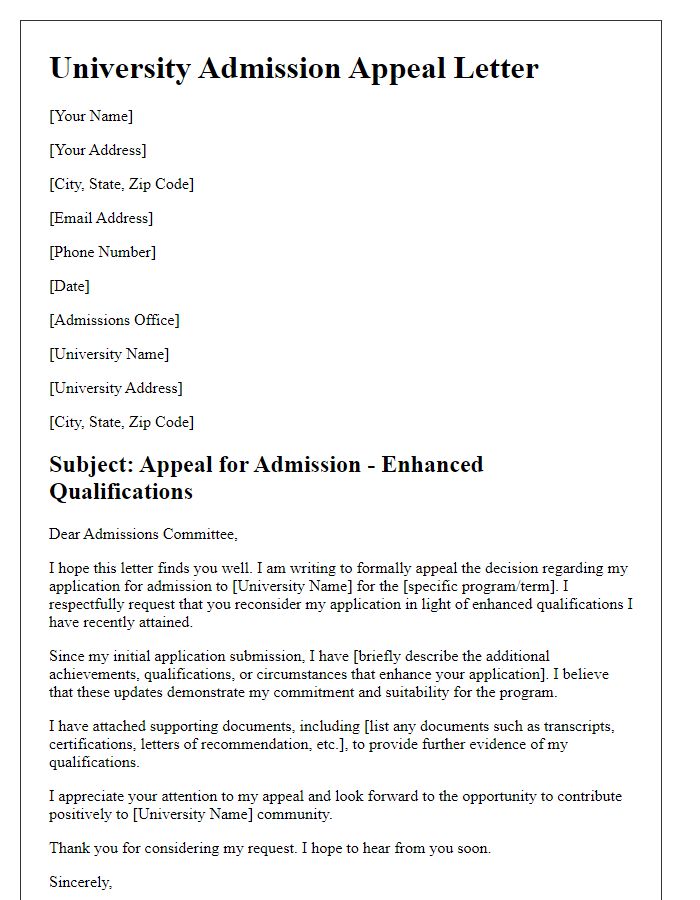
Letter template of university admission appeal after a significant achievement.
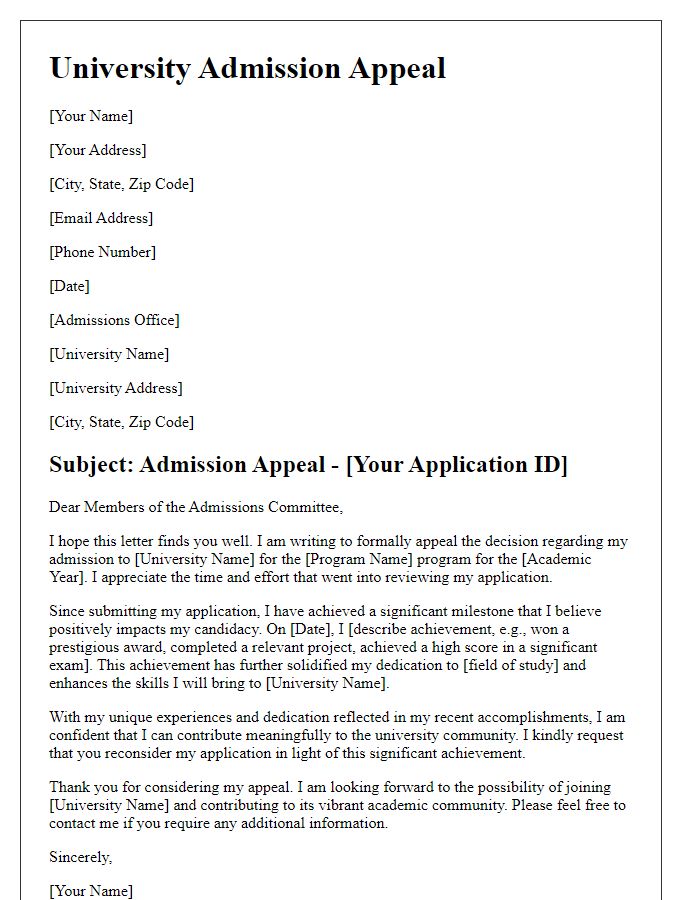
Letter template of university admission appeal for earlier application decision.
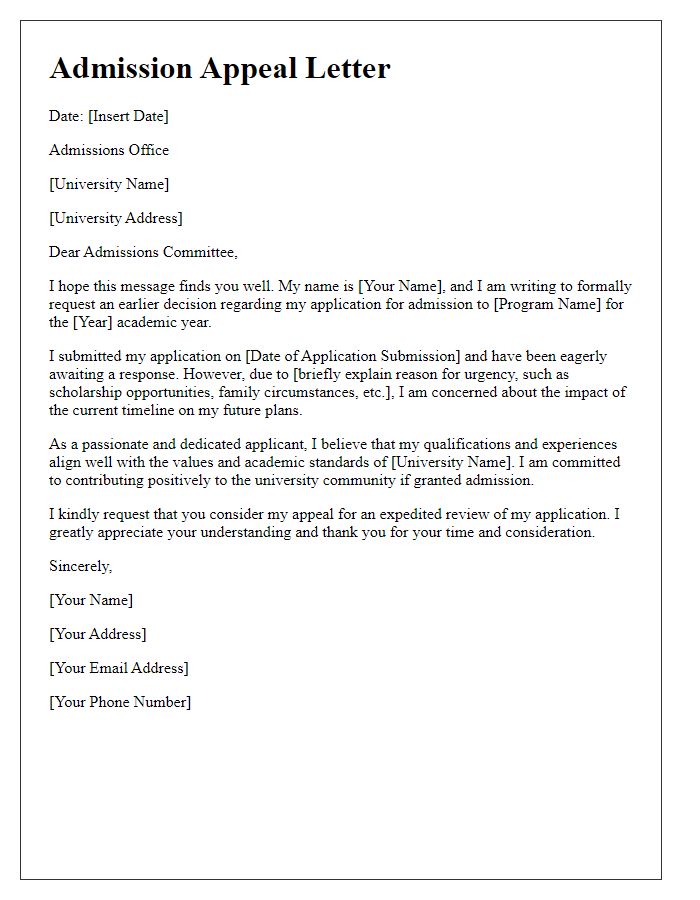
Letter template of university admission appeal highlighting extracurricular contributions.
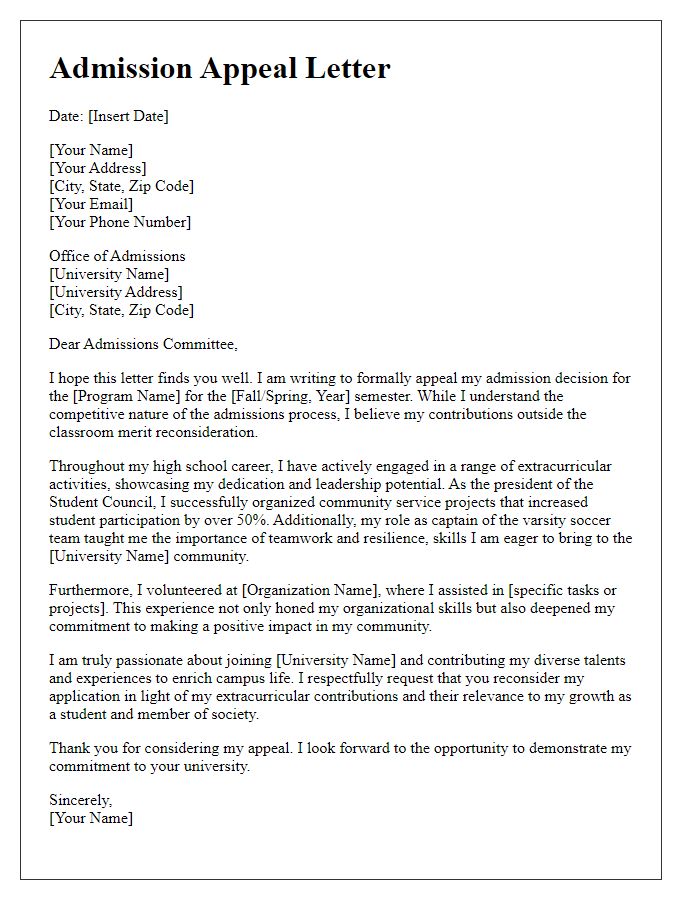
Letter template of university admission appeal for financial considerations.
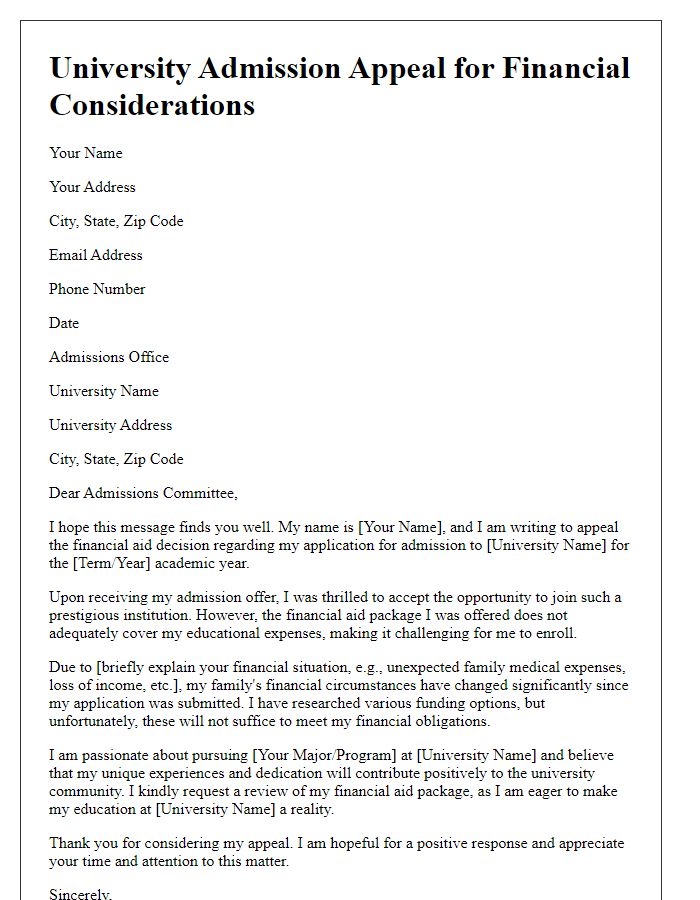
Letter template of university admission appeal for program change request.
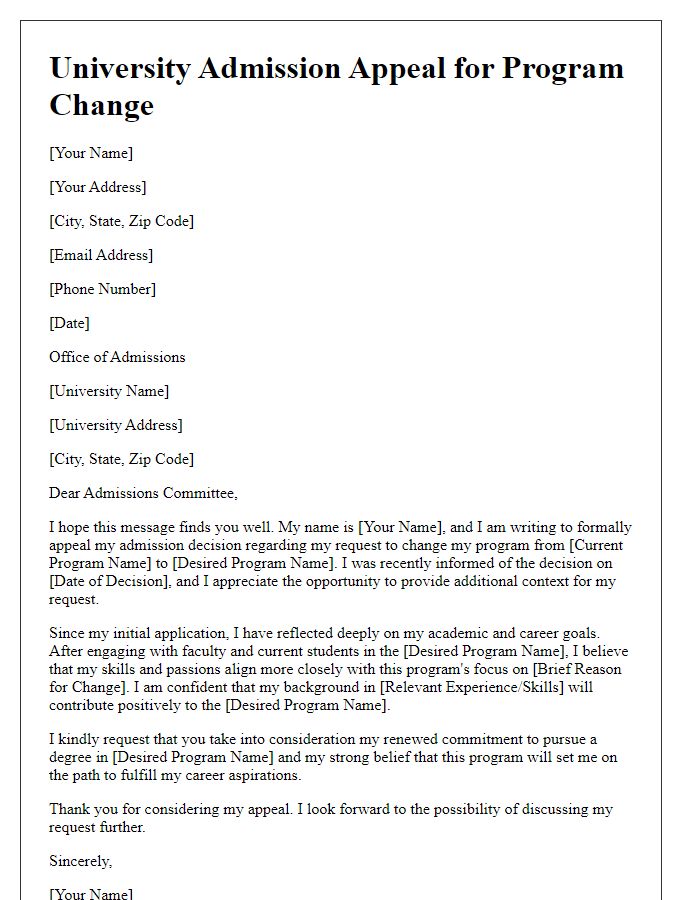

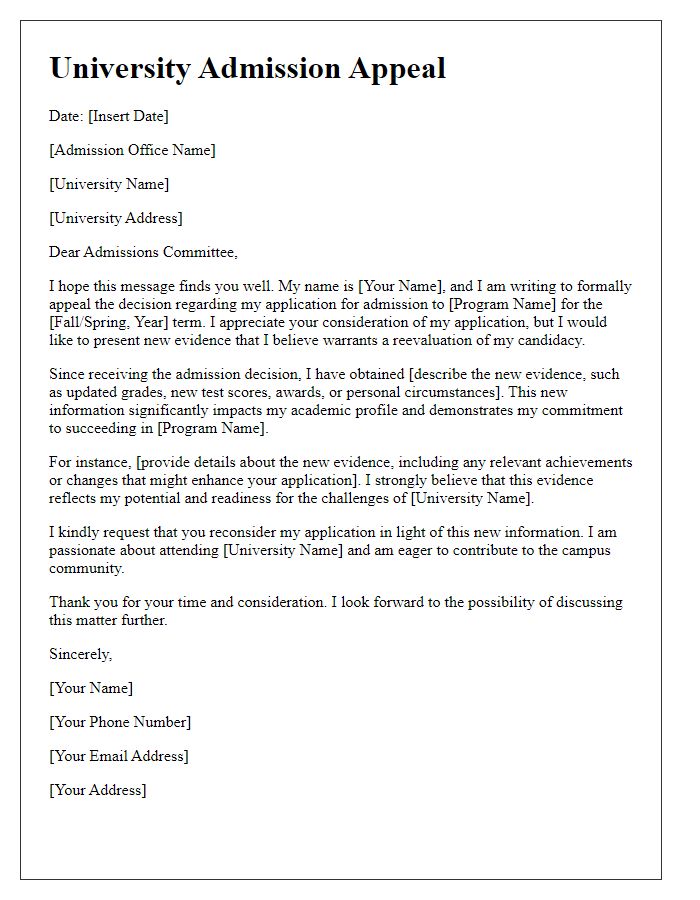
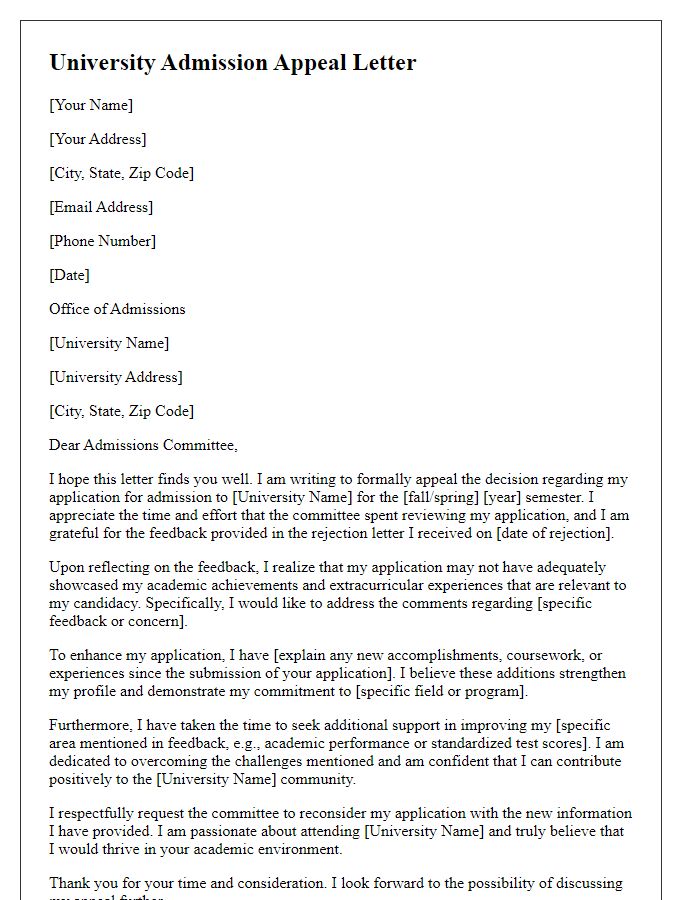


Comments